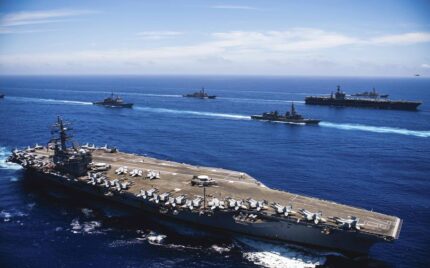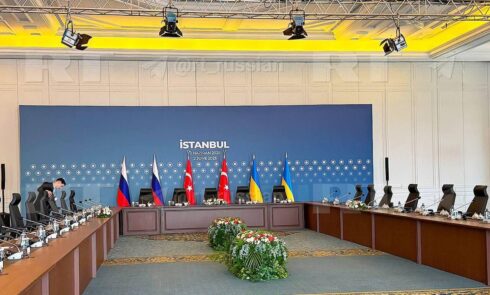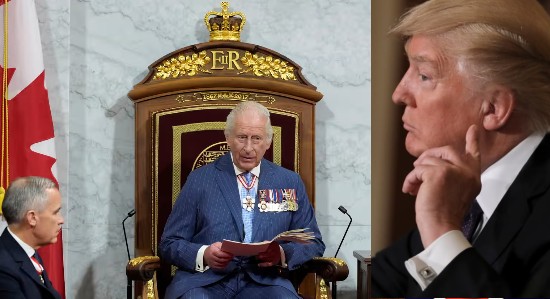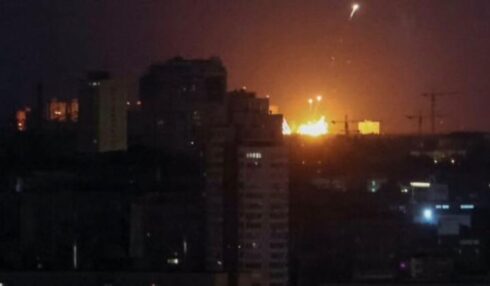China’s military has carried out live-fire exercises in the Taiwan Strait, simulating strikes on key Taiwanese ports and energy infrastructure, the People’s Liberation Army (PLA) announced on Wednesday. The drills, codenamed “Strait Thunder,” mark an escalation of military activities China had initiated a day earlier, encircling Taiwan in what analysts describe as a show of force against the self-governed island.
The latest exercises underscore Beijing’s increasingly aggressive posture towards Taiwan, which it considers a breakaway province despite Taipei’s firm rejection of Chinese sovereignty claims. Taiwan’s presidential office swiftly condemned the military actions, calling them “provocative” and “a severe threat to regional stability.”
Taiwan Denounces “Military Provocations” Amid Escalating Tensions
Taiwanese authorities have strongly condemned China’s latest military drills, branding them as an attempt to intimidate the island’s 23 million residents. “China’s persistent military coercion does nothing but undermine peace and stability in the Taiwan Strait,” a spokesperson for Taiwan’s presidential office said on Tuesday.
The drills come at a time of heightened rhetoric from Beijing, particularly targeting Taiwan’s President Lai Ching-te. Chinese officials have labeled Lai a “separatist” and a “parasite,” intensifying their criticism following his recent remarks describing China as a “foreign hostile force.” Beijing’s state-controlled media has amplified this stance, publishing a series of op-eds denouncing Lai as a “warmonger” and a threat to regional security.
China Justifies Drills as Warning Against “Taiwan Independence”
China’s military has framed the “Strait Thunder” exercises as a decisive message to Taiwan’s leadership, particularly aimed at countering what it calls “separatist forces.” The PLA released a statement asserting that the drills serve as “a serious warning and powerful containment of ‘Taiwan independence’ advocates.”
In an effort to shape public opinion, the PLA has also released a series of propaganda materials, including cartoons portraying President Lai as a destabilizing force. One such cartoon depicted Lai as a “parasite” poisoning Taiwan, while another showed him being grilled over a fire with the caption “courting ultimate destruction.” Additionally, a video produced by the PLA titled “Subdue Demons and Vanquish Evils” compared the Chinese military’s capabilities to the mythical powers of the Monkey King, a legendary character in Chinese folklore.
International Reactions: The U.S. Reaffirms Commitment to Taiwan
In response to China’s escalating military maneuvers, the United States has reiterated its commitment to Taiwan’s security. On Tuesday, the White House stated that President Donald Trump emphasized “the importance of maintaining peace in the Taiwan Strait.”
On Wednesday, the U.S. State Department reinforced this stance, declaring its “enduring commitment” to Taiwan. Meanwhile, U.S. Defense Secretary Pete Hegseth, during his recent visit to Asia, criticized China’s military aggression and vowed that Washington would provide “robust, ready, and credible deterrence” in the region, including in the Taiwan Strait.
Strategic Implications: A Precursor to a Blockade?
Military analysts warn that China’s increasing frequency of drills near Taiwan may signal preparations for a future blockade or invasion attempt. Some experts view the “Strait Thunder” exercises as a rehearsal for a real-life operation aimed at overthrowing Taiwan’s government through economic and military encirclement.
Taiwanese officials have acknowledged the seriousness of the threat but also see an opportunity in China’s war games. “Each time Beijing conducts such exercises, we closely study their tactics and adjust our defense strategies accordingly,” a senior Taiwanese military officer stated. Taiwan’s defense ministry has suggested that China may launch additional large-scale drills later this year, potentially coinciding with the anniversary of President Lai’s inauguration or Taiwan’s National Day in October.
Despite Beijing’s efforts to pressure Taiwan into submission, public opinion in Taiwan remains firmly against unification with China. Polls consistently show that the majority of Taiwanese citizens reject annexation, reinforcing Taipei’s resolve to resist Beijing’s threats and maintain its democratic governance.
As China intensifies its military posture, the Taiwan Strait remains a flashpoint in global geopolitics, with tensions unlikely to ease in the near future.














